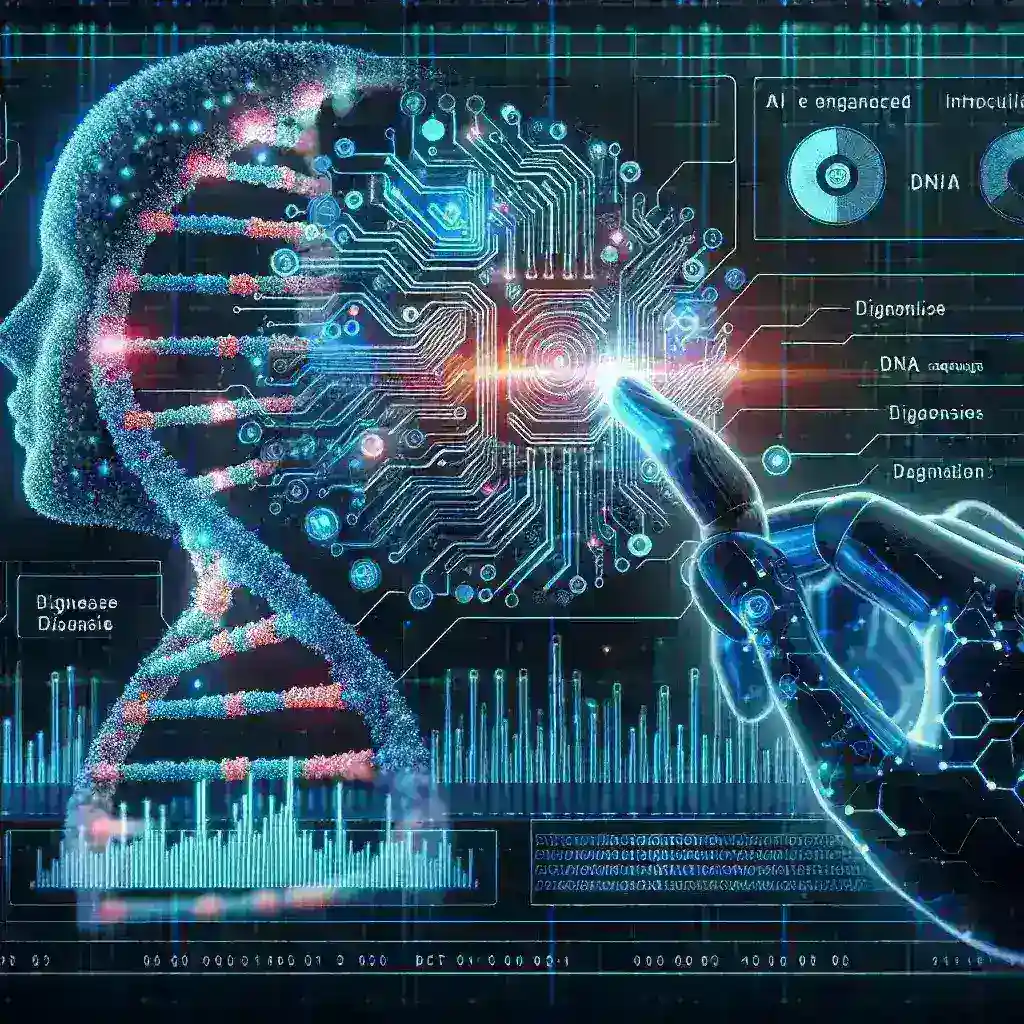Introduction
In recent years, the realm of healthcare has seen monumental advancements, particularly in the field of genetics. Among these advancements, the emergence of AI enhanced DNA sequencing tools has proven to be a game-changer in the diagnosis of rare diseases. With an increasing number of patients suffering from conditions that were once deemed mysterious, the utilization of artificial intelligence in DNA sequencing is paving the way for quicker and more accurate diagnoses.
The Importance of DNA Sequencing in Rare Disease Diagnosis
Rare diseases, defined as conditions affecting fewer than 200,000 individuals in the United States, often present complex and multifaceted challenges. Traditional diagnostic methods can take years due to the intricacies involved in identifying genetic abnormalities. DNA sequencing plays a pivotal role in this process, allowing for the analysis of genetic material to uncover potential mutations that cause these diseases.
The Traditional Diagnostic Challenge
Historically, the journey to a rare disease diagnosis has been fraught with hurdles:
- Prolonged Timeframes: Patients often endure a long diagnostic odyssey, visiting numerous specialists and undergoing various tests.
- High Costs: The financial burden associated with extensive testing can be overwhelming.
- Emotional Toll: The uncertainty of not knowing can lead to significant emotional strain on patients and their families.
AI in DNA Sequencing: A Revolutionary Shift
Artificial intelligence is not just a buzzword; it is a transformative technology that is reshaping how we approach medical diagnostics. AI algorithms can analyze vast datasets with incredible speed and accuracy, finding patterns that may be undetectable to the human eye.
How AI Enhances DNA Sequencing
AI-enhanced DNA sequencing tools leverage machine learning and deep learning techniques to:
- Accelerate Analysis: AI processes genomic data at lightning speeds, dramatically reducing analysis time from weeks to mere hours.
- Improve Accuracy: By learning from previous data, AI algorithms can predict potential variants with high sensitivity, reducing false positives.
- Facilitate Comprehensive Testing: With the ability to analyze entire genomes, AI can identify multiple variants across various genes in one go.
Real-World Applications and Success Stories
The application of AI in DNA sequencing is not theoretical; numerous case studies illustrate its practical benefits:
Case Study 1: Rapid Diagnosis of Genetic Disorders
A five-year-old girl presenting with unexplained developmental delays underwent traditional testing for over two years without a conclusive diagnosis. After being referred to a center utilizing AI-enhanced sequencing, her entire genomic profile was analyzed in under 24 hours, leading to the identification of a rare genetic mutation responsible for her condition. This not only provided a diagnosis but also a targeted treatment plan.
Case Study 2: Cutting Down Cost and Time
A healthcare provider in Europe implemented AI sequencing tools in their diagnostic processes. On average, they saw a reduction in diagnosis time from 12 months to just 4 weeks for rare diseases. This efficiency resulted in cost savings on both the testing and patient management fronts.
Future Predictions: The Road Ahead
As technology evolves, the future of AI-enhanced DNA sequencing is promising. We can expect:
- Increased Accessibility: With costs decreasing and technology becoming more widespread, more patients will benefit from AI-driven diagnostics.
- Integration with Other Technologies: Future advancements may include integration with wearable devices and mobile health applications, providing real-time genetic insights.
- Expansion of AI Capabilities: Ongoing research and development will enhance the abilities of AI algorithms, making them even more reliable and efficient.
Pros and Cons of AI DNA Sequencing
Despite the numerous advantages, it’s essential to consider potential drawbacks:
Pros
- Speed: Drastically reduced diagnosis timeframes.
- Accuracy: Higher precision in identifying genetic mutations.
- Comprehensive Analysis: Ability to uncover multiple variants simultaneously.
Cons
- Data Privacy Concerns: The handling of genetic data poses privacy risks.
- Dependence on Technology: Over-reliance on AI could overlook human expertise.
- Initial Costs: Although costs are dropping, initial investments in technology can be significant.
Conclusion
AI enhanced DNA sequencing tools are at the forefront of medical innovation, especially in the realm of rare disease diagnosis. By drastically reducing diagnosis timeframes, these tools are not only saving time and money but, most importantly, improving the quality of life for countless patients. As we continue to explore this intersection of technology and healthcare, the future looks bright for accurate and timely diagnostics in rare diseases.
Call to Action
As we stand on the brink of a new era in healthcare, it is crucial for stakeholders to embrace the potential of AI in DNA sequencing. By investing in these technologies, we can pave the way for faster diagnoses, better treatments, and a brighter future for those affected by rare diseases.

